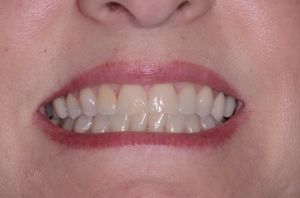UNDER MOST CIRCUMSTANCES, dentists are not fans of candy. Sugar is the favorite ingredient of tooth decay causing bacteria. However, when it comes to chocolate, certain types may actually be good for oral health!
To be clear, this is not a blog post in which we give you a free pass to eat all the chocolate you want. Only certain types of chocolate have any health benefits, and too much of even the healthiest kinds probably isn’t a good thing.

All Chocolate Is Not Created Equal
How can you tell where any given chocolate falls on the spectrum from most processed to least? It helps to know a little about how chocolate is made. The most important ingredient is the cocoa bean. After fermenting, the beans can either be roasted and made into cocoa powder, or cold pressed into cacao powder, which retains more of the original nutrients. You’ll get the most nutrients from cacao nibs or powder, but the stuff is pretty bitter and the chocolatey taste isn’t as strong.
If you’d rather stick with the chocolate you’re used to, there are still factors to consider. The main ingredients in a chocolate bar are cocoa solids, cocoa butter, sugar, and milk (if it’s milk chocolate). White chocolate is made with cocoa butter and sugar and contains no cocoa solids, so it has none of the beneficial nutrients. Milk chocolate tends to contain at most 10 percent cocoa solids, so the tiny amount of nutrients from the cocoa beans is offset by a ton of sugar. Not a healthy choice. But let’s talk about dark chocolate.
The Benefits Of Dark Chocolate
Dark chocolate, particularly 70 percent cocoa (or cacao) or higher, is where you’ll start hearing buzzwords like “superfood.” That’s because the cocoa bean is full of healthy antioxidants–specifically, polyphenols, flavonoids, and tannins–and dark chocolate has enough cocoa in it to keep most of them. Bonus point: there isn’t much sugar.
Antioxidants have all kinds of benefits for overall health, but let’s focus on oral health. Saliva is the mouth’s first line of defense against tooth decay, gum disease, and bad breath, and antioxidants play a crucial role in each of these. They help stabilize and strengthen your own oral tissues, protect against cell mutation, and make it harder for harmful bacteria to flourish.
Chocolate Still Isn’t Everything
Like we said before, this blog post isn’t a license for you to eat as much chocolate as you want. No matter how full of antioxidants it is, dark chocolate still doesn’t replace other important oral health habits like brushing, flossing, and regular dental appointments. If you love to snack, however, you might consider swapping a few items heavy in processed sugars for dark chocolate or cacao nibs. Your teeth will thank you!



